 W
WThe scientific method is an empirical method of acquiring knowledge that has characterized the development of science since at least the 17th century. It involves careful observation, applying rigorous skepticism about what is observed, given that cognitive assumptions can distort how one interprets the observation. It involves formulating hypotheses, via induction, based on such observations; experimental and measurement-based testing of deductions drawn from the hypotheses; and refinement of the hypotheses based on the experimental findings. These are principles of the scientific method, as distinguished from a definitive series of steps applicable to all scientific enterprises.
 W
WIn marketing, a blind taste test is often used as a tool for companies to compare their brand to another brand. For example, the Pepsi Challenge is a famous taste test that has been run by Pepsi since 1975. Additionally, taste tests are sometimes used as a tool by companies to develop their brand or new products.
 W
WIn philosophy, a construct is an object which is ideal, that is, an object of the mind or of thought, meaning that its existence may be said to depend upon a subject's mind. This contrasts with any possibly mind-independent objects, the existence of which purportedly does not depend on the existence of a conscious observing subject. Thus, the distinction between these two terms may be compared to that between phenomenon and noumenon in other philosophical contexts and to many of the typical definitions of the terms realism and idealism also. In the correspondence theory of truth, ideas, such as constructs, are to be judged and checked according to how well they correspond with their referents, often conceived as part of a mind-independent reality.
 W
WConsumer demand tests for animals are studies designed to measure the relative strength of an animal's motivation to obtain resources such as different food items. Such demand tests quantify the strength of motivation animals have for resources whilst avoiding anthropomorphism and anthropocentrism.
 W
WData analysis is a process of inspecting, cleansing, transforming, and modeling data with the goal of discovering useful information, informing conclusions, and supporting decision-making. Data analysis has multiple facets and approaches, encompassing diverse techniques under a variety of names, and is used in different business, science, and social science domains. In today's business world, data analysis plays a role in making decisions more scientific and helping businesses operate more effectively.
 W
WData sharing is the practice of making data used for scholarly research available to other investigators. Many funding agencies, institutions, and publication venues have policies regarding data sharing because transparency and openness are considered by many to be part of the scientific method.
 W
WA hypothesis is a proposed explanation for a phenomenon. For a hypothesis to be a scientific hypothesis, the scientific method requires that one can test it. Scientists generally base scientific hypotheses on previous observations that cannot satisfactorily be explained with the available scientific theories. Even though the words "hypothesis" and "theory" are often used synonymously, a scientific hypothesis is not the same as a scientific theory. A working hypothesis is a provisionally accepted hypothesis proposed for further research, in a process beginning with an educated guess or thought.
 W
WIn philosophy, a construct is an object which is ideal, that is, an object of the mind or of thought, meaning that its existence may be said to depend upon a subject's mind. This contrasts with any possibly mind-independent objects, the existence of which purportedly does not depend on the existence of a conscious observing subject. Thus, the distinction between these two terms may be compared to that between phenomenon and noumenon in other philosophical contexts and to many of the typical definitions of the terms realism and idealism also. In the correspondence theory of truth, ideas, such as constructs, are to be judged and checked according to how well they correspond with their referents, often conceived as part of a mind-independent reality.
 W
WInterrogating Ethnography: Why Evidence Matters is a 2017 book by Steven Lubet of Northwestern University Law School, critiquing methods used in the discipline of ethnography. Writing in Contexts, Syid Ali of Long Island University called it "an essential critique of the most public-facing product sociology has to offer."
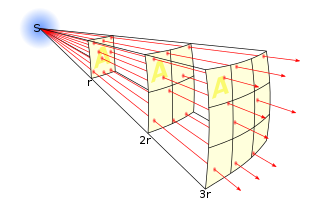 W
WIn science, an inverse-square law is any scientific law stating that a specified physical quantity is inversely proportional to the square of the distance from the source of that physical quantity. The fundamental cause for this can be understood as geometric dilution corresponding to point-source radiation into three-dimensional space.
 W
WIsotope dilution analysis is a method of determining the quantity of chemical substances. In its most simple conception, the method of isotope dilution comprises the addition of known amounts of isotopically-enriched substance to the analyzed sample. Mixing of the isotopic standard with the sample effectively "dilutes" the isotopic enrichment of the standard and this forms the basis for the isotope dilution method. Isotope dilution is classified as a method of internal standardisation, because the standard is added directly to the sample. In addition, unlike traditional analytical methods which rely on signal intensity, isotope dilution employs signal ratios. Owing to both of these advantages, the method of isotope dilution is regarded among chemistry measurement methods of the highest metrological standing.
 W
WThe nursing process is a modified scientific method. Nursing practise was first described as a four-stage nursing process by Ida Jean Orlando in 1958. It should not be confused with nursing theories or health informatics. The diagnosis phase was added later.
 W
WObservation is the active acquisition of information from a primary source. In living beings, observation employs the senses. In science, observation can also involve the perception and recording of data via the use of scientific instruments. The term may also refer to any data collected during the scientific activity. Observations can be qualitative, that is, only the absence or presence of a property is noted, or quantitative if a numerical value is attached to the observed phenomenon by counting or measuring.
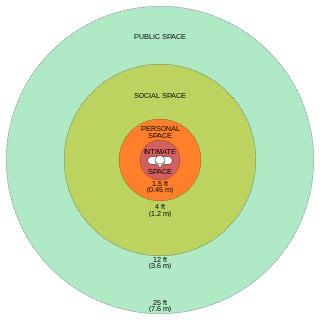 W
WIn research design, especially in psychology, social sciences, life sciences and physics, operationalization or operationalisation is a process of defining the measurement of a phenomenon that is not directly measurable, though its existence is inferred by other phenomena. Operationalization thus defines a fuzzy concept so as to make it clearly distinguishable, measurable, and understandable by empirical observation. In a broader sense, it defines the extension of a concept—describing what is and is not an instance of that concept. For example, in medicine, the phenomenon of health might be operationalized by one or more indicators like body mass index or tobacco smoking. As another example, in visual processing the presence of a certain object in the environment could be inferred by measuring specific features of the light it reflects. In these examples, the phenomena are difficult to directly observe and measure because they are general/abstract or they are latent. Operationalization helps infer the existence, and some elements of the extension, of the phenomena of interest by means of some observable and measurable effects they have.
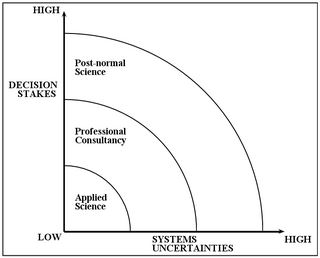 W
WPost-normal science (PNS) represents a novel approach for the use of science on issues where "facts [are] uncertain, values in dispute, stakes high and decisions urgent". PNS was developed in the 1990s by Silvio Funtowicz and Jerome R. Ravetz. It can be considered as a reaction to the styles of analysis based on risk and cost-benefit analysis prevailing at that time, and as an embodiment of concepts of a new "critical science" developed in previous works by the same authors. In a more recent work PNS is described as "the stage where we are today, where all the comfortable assumptions about science, its production and its use, are in question".
 W
WA preference test is an experiment in which animals are allowed free access to multiple environments which differ in one or more ways. Various aspects of the animal's behaviour can be measured with respect to the alternative environments, such as latency and frequency of entry, duration of time spent, range of activities observed, or relative consumption of a goal object in the environment. These measures can be recorded either by the experimenter or by motion detecting software. Strength of preference can be inferred by the magnitude of the difference in the response, but see "Advantages and disadvantages" below. Statistical testing is used to determine whether observed differences in such measures support the conclusion that preference or aversion has occurred. Prior to testing, the animals are usually given the opportunity to explore the environments to habituate and reduce the effects of novelty.
 W
WProvenance is the chronology of the ownership, custody or location of a historical object. The term was originally mostly used in relation to works of art but is now used in similar senses in a wide range of fields, including archaeology, paleontology, archives, manuscripts, printed books, the circular economy, and science and computing.
 W
WQuietism in philosophy sees the role of philosophy as broadly therapeutic or remedial. Quietist philosophers believe that philosophy has no positive thesis to contribute, but rather that its value is in defusing confusions in the linguistic and conceptual frameworks of other subjects, including non-quietist philosophy. For quietists, advancing knowledge or settling debates is not the job of philosophy, rather philosophy should liberate the mind by diagnosing confusing concepts.
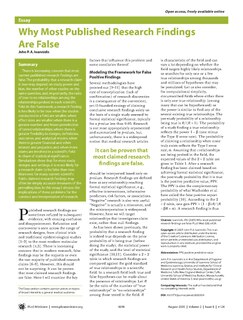 W
WThe replication crisis is an ongoing methodological crisis in which it has been found that many scientific studies are difficult or impossible to replicate or reproduce. The replication crisis most severely affects the social sciences and medicine, while survey data strongly indicates that all of the natural sciences are probably implicated as well. The phrase was coined in the early 2010s as part of a growing awareness of the problem. The replication crisis represents an important body of research in the field of metascience.
 W
WResearch is "creative and systematic work undertaken to increase the stock of knowledge". It involves the collection, organization, and analysis of information to increase understanding of a topic or issue. A research project may be an expansion on past work in the field. To test the validity of instruments, procedures, or experiments, research may replicate elements of prior projects or the project as a whole.
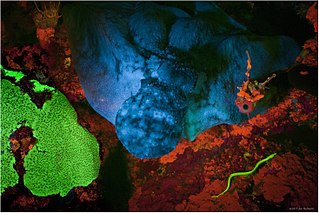 W
WThe role of chance, or "luck", in science comprises all ways in which unexpected discoveries are made.
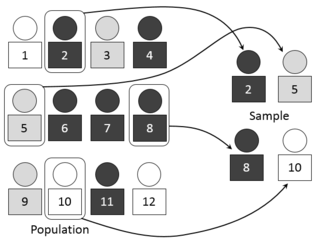 W
WIn statistics, quality assurance, and survey methodology, sampling is the selection of a subset of individuals from within a statistical population to estimate characteristics of the whole population. Statisticians attempt for the samples to represent the population in question. Two advantages of sampling are lower cost and faster data collection than measuring the entire population.
 W
WScience on the verge is a book written in 2016 by group of eight scholars working in the tradition of Post-normal science. The book analyzes the main features and possible causes of the present science's crisis.
 W
WA scientific collection is a collection of items that are preserved, catalogued, and managed for the purpose of scientific study.
 W
WA scientific control is an experiment or observation designed to minimize the effects of variables other than the independent variable. This increases the reliability of the results, often through a comparison between control measurements and the other measurements. Scientific controls are a part of the scientific method.
 W
WScientific laws or laws of science are statements, based on repeated experiments or observations, that describe or predict a range of natural phenomena. The term law has diverse usage in many cases across all fields of natural science. Laws are developed from data and can be further developed through mathematics; in all cases they are directly or indirectly based on empirical evidence. It is generally understood that they implicitly reflect, though they do not explicitly assert, causal relationships fundamental to reality, and are discovered rather than invented.
 W
WSecondary research involves the summary, collation and/or synthesis of existing research. Secondary research is contrasted with primary research in that primary research involves the generation of data, whereas secondary research uses primary research sources as a source of data for analysis. A notable marker of primary research is the inclusion of a "methods" section, where the authors describe how the data was generated.
 W
WSelf-experimentation refers to scientific experimentation in which the experimenter conducts the experiment on themself. Often this means that the designer, operator, subject, analyst, and user or reporter of the experiment are all the same. Self-experimentation has a long and well-documented history in medicine which continues to the present. Some of these experiments have been very valuable and shed new and often unexpected insights into different areas of medicine.
 W
WSkepticism or scepticism is generally a questioning attitude or doubt towards one or more putative instances of knowledge which are asserted to be mere belief or dogma. Formally, skepticism is a topic of interest in philosophy, particularly epistemology. More informally, skepticism as an expression of questioning or doubt can be applied to any topic, such as politics, religion, or pseudoscience. It is often applied within restricted domains, such as morality, theism, or the supernatural.
 W
WThe Royal Commission on Animal Magnetism involved two entirely separate and independent French Royal Commissions, each appointed by Louis XVI in 1784, that were conducted simultaneously by a committee composed of five scientists from the Royal Academy of Sciences and four physicians from the Paris Faculty of Medicine , and a second committee composed of five physicians from the Royal Society of Medicine .
 W
W"Why Most Published Research Findings Are False" is a 2005 essay written by John Ioannidis, a professor at the Stanford School of Medicine, and published in PLOS Medicine. It is considered foundational to the field of metascience.